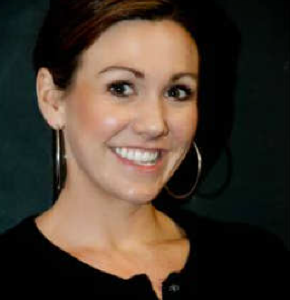My interview with pelvic floor physical therapist Dr. Julie Sarton, PT, DPT, WCS, was filled with so much great information, I couldn’t fit it all into one post. Here is part 2!
4. What could someone dealing with painful sex gain from seeing a pelvic floor physical therapist like yourself?
I think that we are just touching the tip of the iceberg in terms of people who suffer from painful sex. It’s an intimate condition, and is underdiagnosed—some studies suggest that as many as 40% of women suffer from painful intercourse! When we look at sexual pain there are multiple potential causes, but the musculoskeletal system is one of them that I think is routinely missed. I would guess maybe less than 10-20% of physicians (OBGYNs) out there, during the time of the annual exam, ask patients about their sexual life and screen for potential pain. If the musculoskeletal system is found as a driver, a pelvic floor physical therapist is critical in helping that patient achieve a pain free state.
We become one of the primary care practitioners that help. I think it’s important to remember that almost any problem, whether it’s pelvic pain or sexual pain, usually requires multi-modal therapies. So we are one piece of it, rarely working in isolation. You need a village—a team. We need to be working hand in hand with a physician that can help with the medical management, a good psychologist or sex therapist that can deal with the psychological elements that come, and some people need a pain management doctor, or a guided imagery therapist (like we’ve recently integrated), acupuncturist, etc. There is a different team for different patients, but I would say that the physical therapist for many patients becomes one of the mainstays.
5. What should a new patient expect at their first physical therapy session?
The first session—the evaluation—is always going to be the longest. It’s always going to start with an extensive time period to go through the patient’s history. So many of the patients have been bounced from doctor to doctor and never truly been heard. So our goal with that first visit is to hear the entire story. We want not only for them to be heard, but we need to pull all those pieces out from the past that have set the stage and connect the dots to come up with why they’re presenting the way they do. The next piece is the anatomy and we thoroughly explain to the patient because it can be scary and intimidating, so we go through the anatomy with a 3-dimensional model, thoroughly explaining—this is where the pelvic floor is, these are where the muscles go, this is the  nerve innervation, these are the functions—so the patient is comfortable with the exam.
nerve innervation, these are the functions—so the patient is comfortable with the exam.
At that point we exit and the patient will get undressed and underneath a sheet. But we start externally because you can’t look at the pelvic floor in isolation. We start with the patient’s posture, looking at the pelvic alignment, the external muscles, and the tendons and ligaments. Continue reading →
 And here’s the final installment of my interview with pelvic floor physical therapist Dr. Julie Sarton, PT, DPT, WCS. This amazing woman is truly a healer of sexual pain, and in part 3 of my interview she discusses ways you can promote healing on your own.
And here’s the final installment of my interview with pelvic floor physical therapist Dr. Julie Sarton, PT, DPT, WCS. This amazing woman is truly a healer of sexual pain, and in part 3 of my interview she discusses ways you can promote healing on your own.
 nerve innervation, these are the functions—so the patient is comfortable with the exam.
nerve innervation, these are the functions—so the patient is comfortable with the exam.